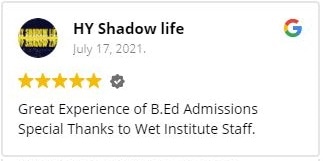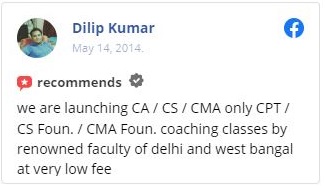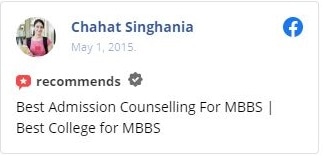Operation Theatre (OT) Technology Course Admission from Top Best Universities in India: Admission Process, Eligibility Criteria, Scope, Fees, Syllabus, and Career Opportunities.
Operation Theatre (OT) Technology Course: Overview
The Operation Theatre Technology Course is a specialized program designed to prepare students for vital roles in healthcare settings, particularly in surgical environments. This course focuses on the skills necessary for operation theatre management, ensuring the smooth functioning of surgical procedures.
Students will explore essential topics such as surgical instruments, anesthesia techniques, sterilization processes, and patient care. Emphasis is placed on practical training, enabling students to gain hands-on experience in real-world operation theatres. Understanding the roles of surgical technologists and the importance of teamwork in high-pressure environments is a key aspect of the curriculum.
The course also covers the ethical and legal considerations in surgical care, preparing graduates to handle complex situations with professionalism. With a focus on surgical safety and infection control, students learn best practices to enhance patient outcomes.
Job opportunities for graduates are diverse, including roles in hospitals, surgical centers, and medical equipment companies. With the healthcare industry constantly evolving, trained professionals in Operation Theatre Technology are in high demand, making this an attractive career path for those interested in healthcare careers.
The Operation Theatre Technology Course provides a comprehensive foundation for a rewarding career, combining technical skills with critical thinking, essential for success in the dynamic field of surgery. Students aspiring to make a difference in patient care will find this course an invaluable step in their professional journey.
Diploma in Operation Theatre (OT) Technology: Eligibility Criteria
The Diploma in Operation Theatre Technology is a vital program for individuals aspiring to work in surgical settings. To ensure that students are adequately prepared for the rigorous training, certain eligibility criteria are typically set by institutions offering this diploma.
Educational Qualification:
- Candidates should have completed their 10+2 education (or equivalent) in the science stream, with subjects such as physics, chemistry, and biology. Some institutions may also accept candidates with a background in nursing or paramedical courses.
- Candidates should have completed their 10+2 education (or equivalent) in the science stream, with subjects such as physics, chemistry, and biology. Some institutions may also accept candidates with a background in nursing or paramedical courses.
Minimum Percentage:
- A minimum aggregate percentage, often around 50% in the qualifying examination, may be required. This percentage can vary based on the institution and its admission policies.
- A minimum aggregate percentage, often around 50% in the qualifying examination, may be required. This percentage can vary based on the institution and its admission policies.
Age Limit:
- Many institutions set an age limit, usually between 17 and 25 years at the time of admission. This may vary, so it’s essential to check specific requirements.
- Many institutions set an age limit, usually between 17 and 25 years at the time of admission. This may vary, so it’s essential to check specific requirements.
Entrance Exams:
- Some colleges may require candidates to appear for an entrance exam. This could include a written test followed by an interview to assess candidates’ aptitude and interest in the field.
- Some colleges may require candidates to appear for an entrance exam. This could include a written test followed by an interview to assess candidates’ aptitude and interest in the field.
Medical Fitness:
- A medical fitness certificate may be required to ensure candidates are physically capable of handling the demands of working in an operation theater.
- A medical fitness certificate may be required to ensure candidates are physically capable of handling the demands of working in an operation theater.
Personal Attributes:
- While not a formal criterion, qualities such as good communication skills, attention to detail, and the ability to work under pressure are essential for success in this field.
Diploma in Operation Theatre (OT) Technology: Admission Process
The admission process for a Diploma in Operation Theatre (OT) Technology typically involves several steps designed to evaluate candidates and ensure they meet the program’s requirements.
Research and Application:
- Begin by researching various institutions offering the Diploma in OT Technology. Check their eligibility criteria, course curriculum, and reputation.
- Obtain the application form, which is often available online or at the institution’s admission office.
Filling out the application form:
- Complete the application form with accurate details, including personal information, educational background, and any relevant experience. Attach required documents such as mark sheets, certificates, and a passport-sized photograph.
- Complete the application form with accurate details, including personal information, educational background, and any relevant experience. Attach required documents such as mark sheets, certificates, and a passport-sized photograph.
Entrance Examination:
- Some institutions may require candidates to sit for an entrance exam. This exam usually tests knowledge in subjects like biology, physics, and chemistry, as well as general aptitude.
- Prepare for the exam by reviewing relevant topics and practicing sample papers.
Interview:
- Candidates who perform well in the entrance exam may be called for a personal interview. This is an opportunity for the institution to assess your motivation, communication skills, and suitability for the program.
- Candidates who perform well in the entrance exam may be called for a personal interview. This is an opportunity for the institution to assess your motivation, communication skills, and suitability for the program.
Merit List:
- After the examination and interviews, institutions typically prepare a merit list based on candidates’ performance. Selected candidates will be notified through email or the institution’s website.
- After the examination and interviews, institutions typically prepare a merit list based on candidates’ performance. Selected candidates will be notified through email or the institution’s website.
Document Verification:
- Selected candidates must undergo document verification. This involves submitting original copies of educational certificates, identity proof, and any other required documents.
- Selected candidates must undergo document verification. This involves submitting original copies of educational certificates, identity proof, and any other required documents.
Fee Payment:
- Once documents are verified, candidates need to pay the admission fee to secure their seat. Details regarding payment methods and deadlines will be provided by the institution.
- Once documents are verified, candidates need to pay the admission fee to secure their seat. Details regarding payment methods and deadlines will be provided by the institution.
Orientation and commencement:
- After successful admission, candidates will attend an orientation session where they’ll receive information about the course structure, faculty, and facilities. Classes usually commence shortly after this session.
Diploma in Operation Theatre Technology Syllabus
Following is the syllabus of the Diploma in Operation Theatre Technology.
First Year
General Human Anatomy | General Human Physiology |
Introduction to Anaesthesia | Biochemistry |
Pathology and microbiology | Principles of Surgery and its Practice |
Introduction to Operation Theatre | Operation Theatre Responsibilities |
Second Year
General surgical procedures | Sterilisation and Disinfection |
Medical and Blood Transfusion | Medical Ethics and Handling of Patients |
Pre- and post-op-patient care | Monitoring and Use of Surgical Instruments |
Universal Safety Precautions and Procedures | Types of Medications and Premedication |
Diploma in Operation Theatre (OT) Technology: Scope and Career Opportunities
The Diploma in Operation Theatre (OT) Technology offers a promising career path in the healthcare sector, particularly in surgical environments. As the demand for skilled professionals in the operating room continues to grow, graduates can explore a variety of career opportunities.
Growing Healthcare Sector:
- With advancements in medical technology and an increasing number of surgeries, the healthcare sector is expanding rapidly. This growth leads to a higher demand for trained OT technologists.
- With advancements in medical technology and an increasing number of surgeries, the healthcare sector is expanding rapidly. This growth leads to a higher demand for trained OT technologists.
Diverse Work Environments:
- Graduates can work in various settings, including hospitals, surgical centers, trauma units, and specialized clinics, ensuring a wide range of work environments to choose from.
- Graduates can work in various settings, including hospitals, surgical centers, trauma units, and specialized clinics, ensuring a wide range of work environments to choose from.
Role in Patient Care:
- OT technologists play a crucial role in ensuring patient safety and comfort during surgical procedures. Their skills contribute to improved surgical outcomes and overall patient satisfaction.
- OT technologists play a crucial role in ensuring patient safety and comfort during surgical procedures. Their skills contribute to improved surgical outcomes and overall patient satisfaction.
Continuous Learning:
- The field encourages ongoing education and specialization in areas such as anesthesia technology, surgical assistance, or surgical instrument management, allowing professionals to advance their careers.
- The field encourages ongoing education and specialization in areas such as anesthesia technology, surgical assistance, or surgical instrument management, allowing professionals to advance their careers.
Operation Theatre (OT) Technology: Career Opportunities
Operation Theatre Technologist:
- Assisting surgeons and anesthetists during procedures, managing surgical instruments, and ensuring the operation theatre is sterile and equipped.
- Assisting surgeons and anesthetists during procedures, managing surgical instruments, and ensuring the operation theatre is sterile and equipped.
Surgical Assistant:
- Working closely with the surgical team to provide assistance during operations, handling instruments, and supporting patient care pre- and post-surgery.
- Working closely with the surgical team to provide assistance during operations, handling instruments, and supporting patient care pre- and post-surgery.
Anesthesia Technician:
- Specializing in the preparation and management of anesthesia equipment, monitoring patients during anesthesia, and assisting anesthesiologists.
- Specializing in the preparation and management of anesthesia equipment, monitoring patients during anesthesia, and assisting anesthesiologists.
Healthcare Administrator:
- Overseeing operations in surgical departments, managing staff, and ensuring compliance with healthcare regulations.
- Overseeing operations in surgical departments, managing staff, and ensuring compliance with healthcare regulations.
Clinical Educator:
- Teaching and training new OT technologists and other healthcare staff, sharing knowledge about best practices and advancements in the field.
- Teaching and training new OT technologists and other healthcare staff, sharing knowledge about best practices and advancements in the field.
Medical Equipment Sales/Support:
- Working with companies that manufacture surgical instruments and equipment, providing support and training to healthcare professionals.






























